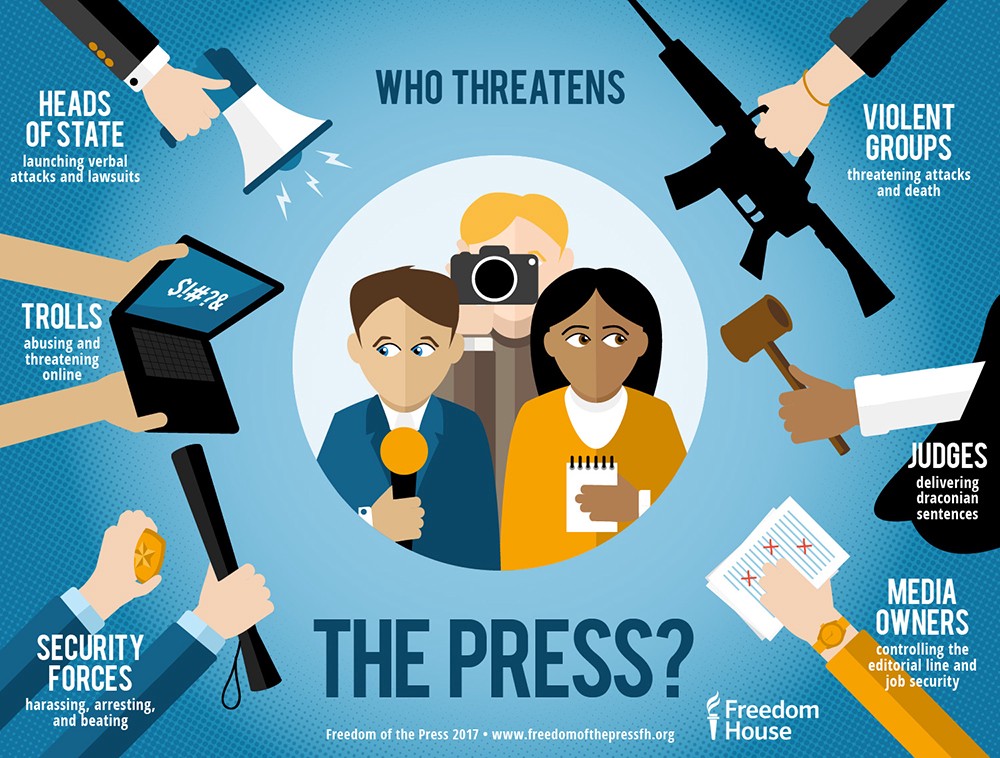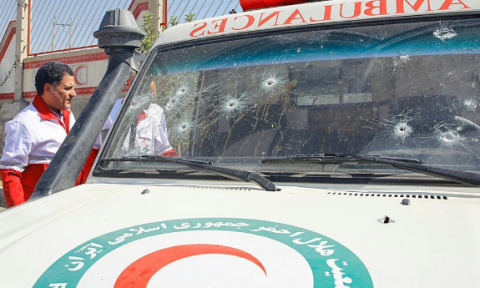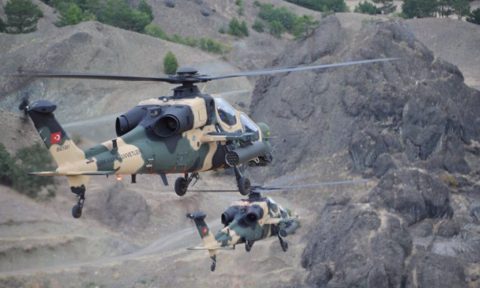Following several violations against media workers overnight, the Metro Center for Journalists’ Rights and Advocacy said on Tuesday (June 22) that journalists do not pose a threat to the stability and peace of Sulaimani and that “unidentified forces” must not use violence when dealing with journalists.
In fact, it is armed forces who attack other members of the security forces that pose a threat to peace in the city, the watchdog said.
Late on Monday night, ten members of the security forces were wounded in a shooting incident in Sulaimani’s Sarchinar neighborhood, which allegedly involved members of a variety of units affiliated with the Patriotic Union of Kurdistan (PUK).
Journalists working for a number of outlets responded to cover the incident, but were attacked by the security forces as they tried to report on the story.
An NRT reporting team, consisting of reporter Karzan Tariq and camera operator Muhammed Hassan, was attacked and arbitrarily detained for approximately half an hour as they tried to cover the news from Shar Hospital, where several of the shooting victims were being treated.
Their reporting equipment and phones were seized, but later returned to them.
“They told us to stay away from the area and that covering [the incident] is prohibited,” Tariq said referring to the members of the security forces who detained them.
Similar violations were also committed against reporting teams working for Rudaw, Esta Media Network, KNN, and BMC at locations in Sarchinar and at Shar Hospital.
Metro Center condemned the attacks and violations and called on the head of the Sulaimani Security Committee to return any missing equipment and prosecute according to the law those who had violated the rights of journalists.
Press freedom watchdogs, human rights groups, and foreign diplomats have expressed alarm about the deteriorating state of press freedom in the Kurdistan Region.
According to Metro Center, there were at least ۳۸۵ violations against 291 journalists and media agencies during 2020, including assaults, arrests, office closures, and harassing lawsuits.
Although many of those took place in Erbil and Duhok governorates, which are controlled by the Kurdistan Democratic Party (KDP), journalists working in PUK-controlled Sulaimani and Halabja are also constantly under threat.
TIPS for reporters by IKHRW:
Reporting on corruption, abuse of power and human rights violations have become more and more difficult both in clan-ruled Iraqi Kurdistan and North-East Syria. Often, reporters are denied access to information or crime scenes, and are told reporting on issues are prohibited. Yet, reporting on these issues is crucial for an honest display of the situation on the ground.
Reporters and civilians should be urged to not endanger themselves, but use different approaches to keep covering on corruption, abuse of power and human rights violations. This can be done by contacting locals at the scene and obtain information by these sources – if needed so anonymously.
We recommend journalists unable to visit a scene due to personal security threats, use social media and phone connection to reach sources. Sources can be easily obtained by contacting locals, whose numbers can be found on google maps. For instance, the Sarchinar shooting took place in a crowded neighborhood.
It was easy for the IKHRW to contact a supermarket clerk at the scene, whose details were obtained through Google maps. This information can be verified by contacting multiple locals at the scene and comparing their stories. Sources wishing to share footage or photo material of sensitive issues can use social media platforms to share crucial information and stay anonymous at the same time.










